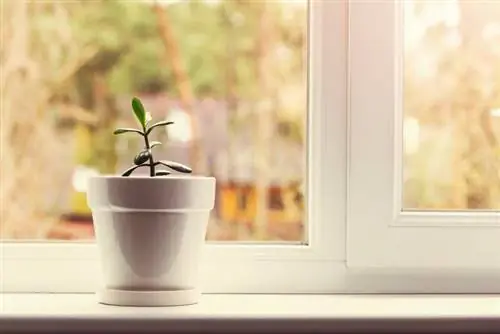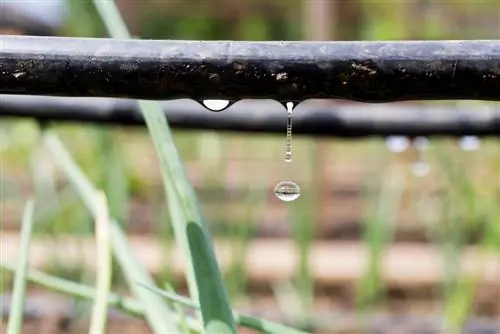- Author admin leonars@hobbygardeners.com.
- Public 2023-12-16 16:46.
- Last modified 2025-01-23 11:20.
The verbena is one of the uncomplicated plants. This applies to their existence in the pot or planter on the balcony as well as in the bed in the garden. Nevertheless, it should be given a portion of care so that it can be enjoyed for a long time.

How should you care for a verbena?
Verbenas require regular watering, well-drained soil and a moderately moist environment. Fertilize once a week in the pot and monthly in the bed. You can propagate them from seeds and promote the formation of new flowers by removing withered flowers. Watch out for pests and prevent mildew.
Can verbena cope with drought?
The verbena needs a lot of water, but cannot cope with waterlogging. If it grows on the balcony, it needs to be watered regularly. The soil should never dry out completely. So that it doesn't drip with moisture, well-drained soil and drainage from the pot are required.
Ideally, the soil for the verbena is kept moderately moist. If it grows in the bed, the soil can be provided with a layer of mulch, for example from bark, compost or lawn clippings.
Do verbena need regular fertilization?
In addition to being thirsty, verbenas are extremely hungry fellows. They should be supplied with nutrients at regular intervals. On the balcony, it should be supplied with fertilizer such as guano fertilizer (€13.00 on Amazon) once a week during its growing season from April onwards. The result is a long flowering period.
In the open ground, it is sufficient to provide the verbena with liquid fertilizer once a month. It is also advisable to bring the soil into nutrient condition before sowing or planting. This can be done, for example, in the form of compost or manure.
How can verbena be propagated?
You can easily propagate the verbena using its seeds. Sow them at home in March or outdoors in April. The seeds are lightly covered with soil. The first seedlings can be seen after about three weeks.
Verbenas often reproduce on their own through self-sowing. Your trained seeds are cold germinators. If they fall down in the fall, they won't germinate. They are only stimulated to germinate in spring, after they have experienced a cold period.
What other care measures are there?
You should take the following additional care measures:
- cut off wilted flowers regularly (stimulate new flower formation)
- if applicable Reading snails
- if applicable rid the plant of aphids
- To strengthen against mildew, fertilize with manure and/or spray with a decoction of wormwood or horseradish
Tips & Tricks
For bushy growth, you should trim young plants from a height of 10 cm.






